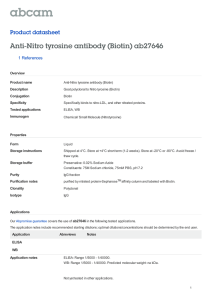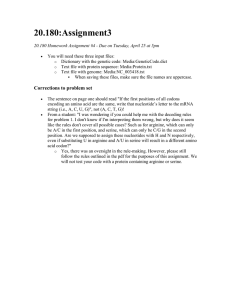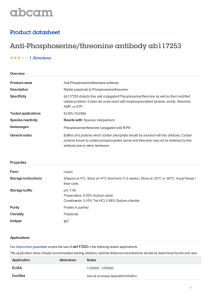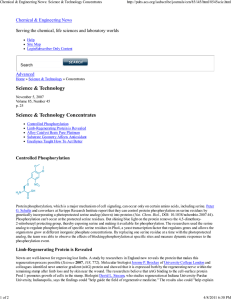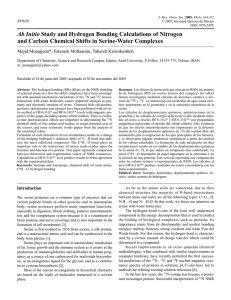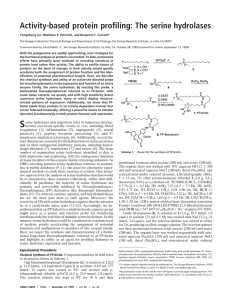Anti-Phosphoserine antibody (Biotin) ab9335 Product datasheet 1 References Overview
advertisement
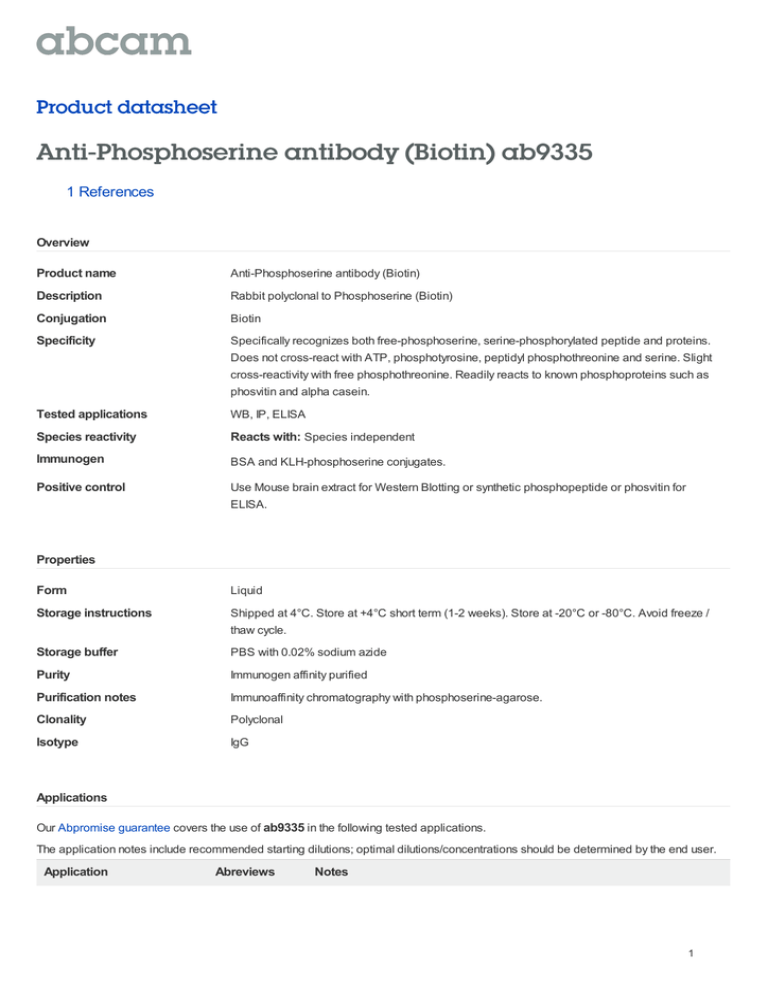
Product datasheet Anti-Phosphoserine antibody (Biotin) ab9335 1 References Overview Product name Anti-Phosphoserine antibody (Biotin) Description Rabbit polyclonal to Phosphoserine (Biotin) Conjugation Biotin Specificity Specifically recognizes both free-phosphoserine, serine-phosphorylated peptide and proteins. Does not cross-react with ATP, phosphotyrosine, peptidyl phosphothreonine and serine. Slight cross-reactivity with free phosphothreonine. Readily reacts to known phosphoproteins such as phosvitin and alpha casein. Tested applications WB, IP, ELISA Species reactivity Reacts with: Species independent Immunogen BSA and KLH-phosphoserine conjugates. Positive control Use Mouse brain extract for Western Blotting or synthetic phosphopeptide or phosvitin for ELISA. Properties Form Liquid Storage instructions Shipped at 4°C. Store at +4°C short term (1-2 weeks). Store at -20°C or -80°C. Avoid freeze / thaw cycle. Storage buffer PBS with 0.02% sodium azide Purity Immunogen affinity purified Purification notes Immunoaffinity chromatography with phosphoserine-agarose. Clonality Polyclonal Isotype IgG Applications Our Abpromise guarantee covers the use of ab9335 in the following tested applications. The application notes include recommended starting dilutions; optimal dilutions/concentrations should be determined by the end user. Application Abreviews Notes 1 Application Abreviews WB Notes Use a concentration of 4 µg/ml. Do not use milk as a blocking agent or in diluents, as milk casein is phosphorylated at several serine residues. BSA is recommended instead. IP Use at an assay dependent dilution. ELISA Use a concentration of 0.5 µg/ml. Target Relevance Changes in the serine/threonine phosphorylation state of a protein in response to various external stimuli can have profound effects on cellular signal transduction, apoptosis and carcinogenesis. The reagents, including phosphorylated protein/peptides, antibodies against the phosphospecific amino acid, are important tools to explore the activation of serine, threonine or tyrosine containing proteins. An aberrant protein phosphorylation is a hallmark of human disease, and the enzymes, particularly protein kinases, which control protein phosphorylation are recognized as a major new drug target family. Please note: All products are "FOR RESEARCH USE ONLY AND ARE NOT INTENDED FOR DIAGNOSTIC OR THERAPEUTIC USE" Our Abpromise to you: Quality guaranteed and expert technical support Replacement or refund for products not performing as stated on the datasheet Valid for 12 months from date of delivery Response to your inquiry within 24 hours We provide support in Chinese, English, French, German, Japanese and Spanish Extensive multi-media technical resources to help you We investigate all quality concerns to ensure our products perform to the highest standards If the product does not perform as described on this datasheet, we will offer a refund or replacement. For full details of the Abpromise, please visit http://www.abcam.com/abpromise or contact our technical team. Terms and conditions Guarantee only valid for products bought direct from Abcam or one of our authorized distributors 2
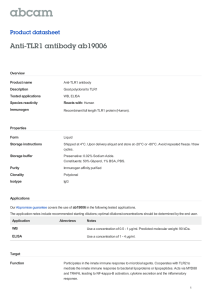
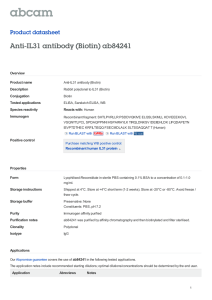
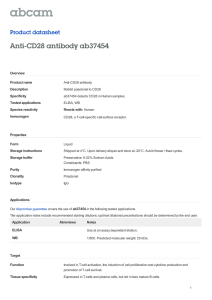
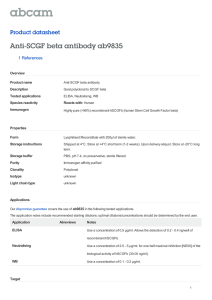
![Anti-SCF antibody [1.2_2H5-1C10] ab17482 Product datasheet Overview Product name](http://s2.studylib.net/store/data/012512210_1-7f6f843287d5ab7338411d5cede2de30-300x300.png)
